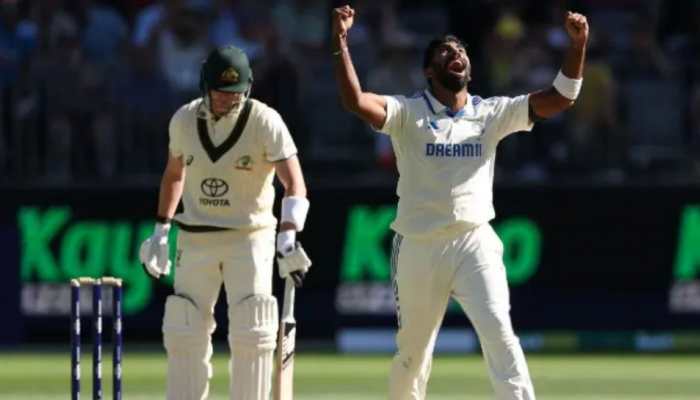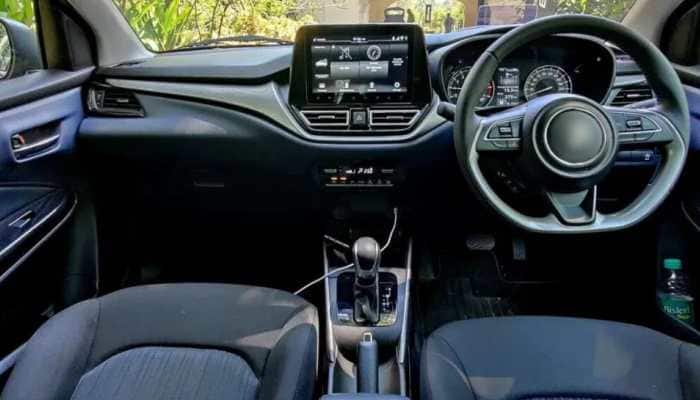Unwarranted and gratuitous: India strongly condemns Pakistan's remarks on Ayodhya verdict
Hitting out at Pakistan on Saturday for objecting to the timing of the Ayodhya verdict, the government said Islamabad's 'pathological compulsion' to comment on its internal affairs with the obvious intent of spreading hatred is condemnable.
Trending Photos
)
NEW DELHI: India has strongly rejected and condemned Pakistan's comments on the Supreme Court verdict in Ram Janmabhoomi-Babri Masjid title dispute case, calling it 'unwarranted and gratuitous'.
Hitting out at Pakistan on Saturday for objecting to the timing of the Ayodhya verdict, the government said that Islamabad's 'pathological compulsion' to comment on its internal affairs with the obvious intent of spreading hatred is condemnable.
"We reject the unwarranted and gratuitous comments made by Pakistan on the judgement of the Supreme Court of India on a civil matter that is completely internal to India. It pertains to the rule of law and equal respect for all faiths, concepts that are not part of their ethos. So, while Pakistan's lack of comprehension is not surprising, their pathological compulsion to comment on our internal affairs with the obvious intent of spreading hatred is condemnable," MEA spokesperson Raveesh Kumar said while addressing a press conference.
It may be recalled that Pakistan's Foreign Minister Shah Mahmood Qureshi had objected to the timing of the Ayodhya verdict, which coincided with the inauguration of the Kartarpur Corridor, saying he was "deeply saddened" at the "insensitivity" shown at such a joyous occasion.
The five-judge Constitution Bench of the Supreme Court on Saturday, (November 9, 2019), ruled in favour of the Hindus in the over 70-year-old Ram Janmabhoomi-Babari Masjid title dispute case ordering the allocation of the contested site to them for the construction of a temple.
The historic day for India - the largest secular democracy in the world - saw the end of a dispute spanning several centuries which had pitted the Hindu and Muslim communities against each other in the courts. The five-judge bench led by Chief Justice of India Ranjan Gogoi and comprising of Justice Sharad Arvind Bobde, Justice Ashok Bhushan, Justice DY Chandrachud and Justice SA Nazeer maintained the title suit of Ram Lalla and rejected the other petitions. But the court also ordered that 5 acres of alternate land should be provided to the Sunni Waqf Board at a prominent place in Ayodhya.
According to the Supreme Court judgement, the Centre must establish a Board of Trustees within three months for the construction of the Ram Mandir.
"Central government shall form in three to four months a scheme for setting up of a trust. They shall make necessary arrangements for the management of trust and construction of the temple," Chief Justice Ranjan Gogoi said while reading out the verdict
While reading out its unanimous judgement in the politically-sensitive case, the bench said that Ram Janmabhoomi is not a 'legal personality' but a deity is a jurisdictional person. CJI Ranjan Gogoi said that the faith of Hindus that Lord Ram was born at the said site in Ayodhya stands "undisputed".
"Hindus consider Ayodhya as the birthplace of Lord Ram. They have religious sentiments. Hindus have faith and belief that Lord Ram was born under the dome. The faith of Hindus that Lord Ram was born here is undisputed," CJI Gogoi said while reading out the verdict.
The CJI stated that the titles cannot be decided on faith and belief but on the claims. "Historical accounts indicate belief of Hindus that Ayodhya was the birthplace of Lord Ram," Chief Justice Gogoi said.
Justice Gogoi said that the evidence shows that 'Ram Chabutra' and 'Sita Rasoi' were worshipped by the Hindus much before the British invaded. "Evidence in the records show that Hindus were in the possession of the outer court of the disputed land," Chief Justice Gogoi said. He further said that credentials provided by the Archaeological Survey of India are beyond doubt and its findings can`t be neglected.
The Supreme Court also dismissed the Special Leave Petition (SLP) filed by Shia Waqf Board challenging the order of 1946 Faizabad Court. "We have dismissed the Special Leave Petition filed by Shia Waqf Board challenging the order of 1946 Faizabad Court," the top court bench said.
While reading out the verdict in the Ayodhya land dispute case, the Chief Justice said, "Babri mosque was built by Mir Baqi. It is inappropriate for the Court to get into an area of theology."
Stay informed on all the latest news, real-time breaking news updates, and follow all the important headlines in india news and world News on Zee News.
Live Tv







)
)
)
)
)
)
)
)
)
)
